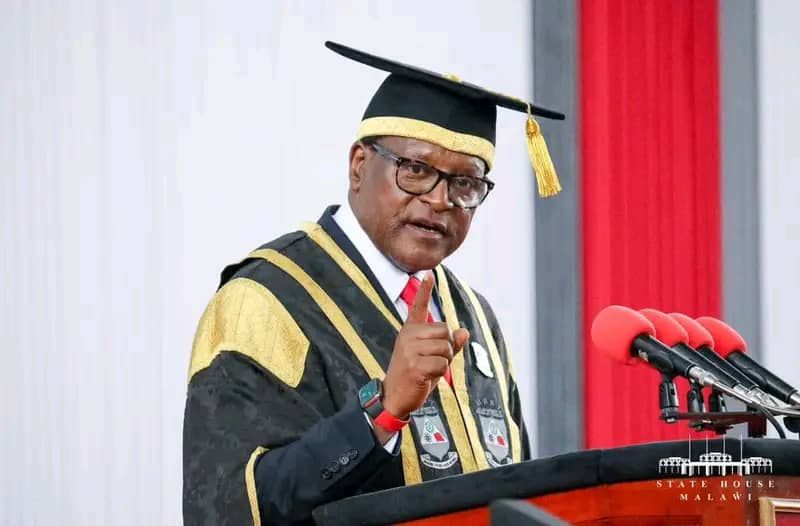By Burnett Munthali
President Lazarus Chakwera has rejected calls for the government to allow its agencies to increase fuel prices, citing the need to protect Malawians from further economic hardships. The president’s stance comes amid rising global oil prices and pressure from stakeholders who argue that higher prices would stabilize fuel supply in the country.
Speaking during a recent event, President Chakwera emphasized that any decision to raise fuel prices must carefully consider the economic impact on ordinary citizens already burdened by inflation and high costs of living.

“My government is committed to ensuring that Malawians do not shoulder unnecessary burdens. We must find alternative solutions to address fuel supply challenges without compromising the well-being of our people,” Chakwera said.
The Malawi Energy Regulatory Authority (MERA) and other stakeholders have advocated for fuel price adjustments, arguing that the current prices do not reflect market realities. They warn that failure to adjust prices could lead to persistent fuel shortages as importers struggle to recover costs.
“We understand the president’s concerns, but the current fuel pricing structure is unsustainable. Importers are operating at a loss, and this jeopardizes the entire supply chain,” said a MERA official who spoke on condition of anonymity.
Opposition leaders and economic experts have weighed in, with some accusing the government of politicizing the issue. They argue that artificially suppressing fuel prices will lead to further economic challenges, including scarcity of fuel and black market activities.
“While the president’s intentions are commendable, the government must balance populist policies with economic realities. A pragmatic approach is needed to address this crisis,” said economist Victor Mbewe.
President Chakwera has directed MERA and other stakeholders to explore alternative measures, such as reducing operational inefficiencies and diversifying energy sources, to stabilize the fuel sector. Meanwhile, the public remains anxious about the potential for long queues and erratic supply at service stations.
As the debate continues, the government’s ability to navigate these challenges without compromising economic stability or public trust will be closely watched.


